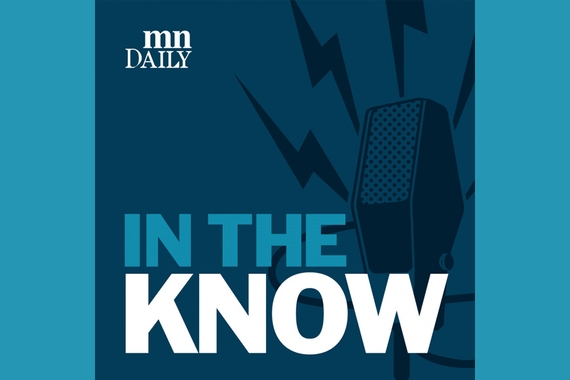Early Childhood Education Investments Bring “A High Public Return”
In spring 2023, the Heller-Hurwicz Economics Institute launched a podcast called “Office Hours,” hosted by Chris Farrell, senior economics contributor on Marketplace, American Public Media’s nationally syndicated public radio business and economic program. The podcast features University of Minnesota economists and their research. Each episode explores economic topics that impact our daily lives and discusses economics in a way that is accessible for many people to understand.
A recent episode of the Office Hours Podcast featured alumnus Art Rolnick (PhD ‘73, economics), former senior vice president and director of research at the Federal Reserve Bank of Minneapolis, and a senior fellow at the University of Minnesota’s Humphrey School of Public Affairs. He is currently an associate economist at the University of Minnesota.
This article is a summary of the episode.
A Career Path Change
Art Rolnick has been speaking around the country about the benefits of quality early childhood education for 20 years. During interviews, the first question he’s often asked is “How does a guy who's at the Federal Reserve who studies business cycles, inflation, unemployment…go from worrying about banks to worrying about babies?
After attending a talk about Minnesota’s large achievement gap in education and the difference that investing in early childhood education could make in improving that gap, Rolnick noted that an economic argument for such an investment might help policymakers see the light. Soon after, people like former Minnesota governor Al Quie and former Minneapolis mayor Don Fraser, and businessman and politician Todd Otis asked Rolnick to evaluate longitudinal studies (over decades) to make the case.
Investing in Education for the Economy
In calculating the return on investment of funds spent on early childhood education, Rolnick and his colleagues found their economic lightswitch. Funds spent on early childhood education resulted in an impressive, inflation adjusted, return of 18%. Plus, “most of that return... is public,” says Rolnick. “There’s clearly some private benefits to the child, but there are public benefits in terms of reduction in crime [and] lowering the cost of schools, so it was a high public return.”
According to Rolnick, based on his study and others, investing in early childhood education is not only beneficial for the children and society, but also for the economy. He explains that when children are given access to quality education programs, there are societal benefits—for example, they are more likely to get a job, less likely to commit a crime, and enjoy better health.
Five Challenges
To make the investment worthwhile, Rolnick says that “from this research there are actually five challenges,” that must be overcome. These include: children and parents need to start early in the child’s life, the program needs to be high quality, investments need to be targeted to low-income families, parents need to be engaged with the program, and it needs to be scalable (it needs to reach a lot of kids).
To get through these challenges and make sure that these investments would work, a pilot program based on this model was launched in 2005 in St. Paul, Minnesota communities. Through this model, low-income families receive a mentor, prenatal nursing visits, and scholarships for high-quality programs that the parent chooses. This Minnesota program is currently being funded annually, and 15,000 children are being helped through it.
Rolnick explains that although this program seems like an expensive investment, since the return on investment is so high, it’s actually inexpensive. He also says that he’s optimistic that this model will be fully funded not only in Minnesota but throughout the US.
Where Minnesota Stands Now
The close of the most recent legislative session brought good news for Rolnick and Minnesota families. According to a Minnesota Public Radio News story, the state “is putting more than $300 million in new spending toward early childhood initiatives, including early learning scholarships for low-income families, grow-your-own educator grants, and a new state agency dedicated to youth and families.”
In response to this new funding, Rolnick says that “the generous increase in funding will help ensure that many more children living in poverty will be more likely to succeed in school and succeed in life.” He says that for the past twenty years, he’s been making the case that investing in early childhood education is one of the best investments a community can make. “Funding should have happened years ago, but much better late than never,” he adds.
In the future, Rolnick says that “this funding will help insure that Minnesota will continue to have a high- quality workforce, and hence a prosperous economy,” demonstrating the larger-scale benefits for states that adopt this model and these investments.
Now that there has been more funding, Rolnick is more “optimistic now that we can reduce inter-generational poverty.”
This story was written by an undergraduate student in CLA.




